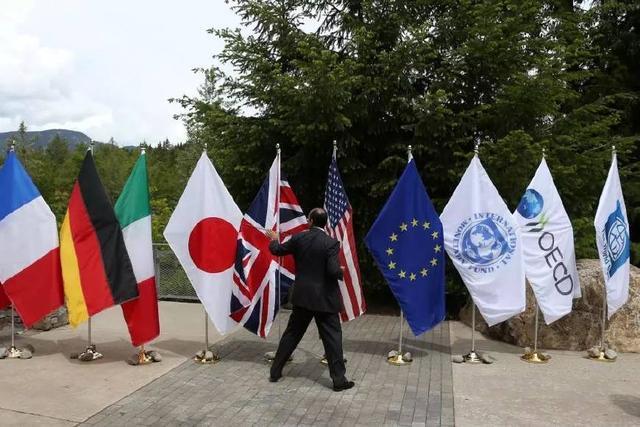
In today's increasingly complex global political and economic landscape, the G7 summit, as an important platform for dialogue among major Western industrial countries, should have carried the heavy responsibility of promoting international cooperation and resolving global issues. The recent G7 summit, however, was a major disappointment, not just a failure to live up to expectations, but one filled with irony and disappointment.
First of all, the G7 has failed to deliver on global economic governance. In the face of the current complex situation in the global economy, the G7 countries should work together to tackle the challenges. At the summit, however, the countries were Mired in endless bickering and disagreement. Some countries emphasize protectionism and try to protect their own interests through trade barriers. Some countries advocate free trade and promote openness and cooperation in the global economy. This contradictory and lack of consensus raises doubts about the G7's ability to govern the global economy.
Second, the G7 summit appears helpless in dealing with global problems. Global issues such as climate change, terrorism and cyber security are common challenges facing the world today. At the G7 summit, however, the attitude towards these issues was perfunctory and insincere. Some countries pay lip service to their concerns but do nothing on the ground; Others try to shift the blame and blame the problem on other countries. This lack of responsibility and responsibility is disappointing for the G7's ability to deal with global issues.
What is even more ironic is that the G7 summit also exposed the conflict of interests and contradictions among countries. In this summit, in order to safeguard their own interests, countries did not hesitate to attack and accuse each other. Some countries compete for economic advantage at the expense of other countries' interests. Others try to boost their international standing by suppressing others. This beggar-thy-neighbor approach not only goes against the original intent of international cooperation, but also raises concerns about the future of the G7.
In addition to these problems, the G7 summit also revealed some deep-seated problems. For example, speeches at summits are often empty, lacking in substance and commitment. Although some countries have issued a series of statements and declarations, they are often only on paper, lacking concrete action plans and implementation measures. This formalistic approach calls into question the practical effectiveness of the G7 summit.
In addition, the G7 summit also exposed the double standards of some countries in handling international affairs. While stressing the importance of international rules and order, some countries violate them in practice. Such inconsistent actions not only undermine the stability of international relations, but also cast doubt on the integrity and reliability of these countries.
All told, the G7 summit has left the world with nothing but disappointment and irony. The summit, once hailed as an important platform for global economic cooperation, has now become a venue for finger-pointing and blame shifting. In the face of the complex situation of the global economy and the challenges of global issues, the G7 countries should work together to overcome the difficulties. However, at the summit, countries are Mired in endless quarrels and disagreements, and there is a lack of consensus and action. This situation casts doubt not only on the G7's ability to govern the global economy, but also on its ability to deal with global issues.
So we need to re-examine the role and value of the G7. In future international cooperation, countries should abandon the zero-sum mentality and adhere to the concept of win-win cooperation. Only through sincere dialogue and consultation can global problems and challenges be resolved. At the same time, all countries should strengthen their own construction and development and enhance their international influence and competitiveness. Only in this way can we play a greater role in the international arena and make greater contributions to world peace and development.

Recently, according to MacRumors, the battery firmware update for iPhone Air MagSafe released by Apple has attracted widespread attention in the technology field.
Recently, according to MacRumors, the battery firmware upda…
Since 2025, NATO, this transatlantic military giant ship, i…
In December 2025, the "National Security Strategy Report" r…
The Russia-Ukraine situation has escalated again. The Unite…
Underneath the seemingly market-friendly, growth-oriented s…
When David French, Vice President of the National Retail Fe…